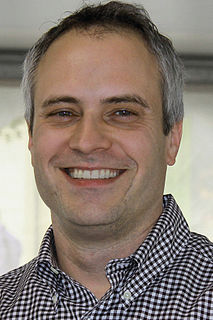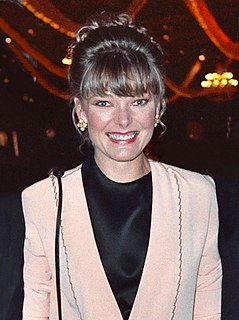A Quote by James Buchan
Where consumption is both conspicuous and competitive, humanity will never run out of new wishes. All the while, industry creates new desires that are marketed, in the great fashion paradox, as both novelty and need.
Related Quotes
It seems almost oxymoronic to believe that this new idealism has led to a new pessimism about marriage, but that is exactly what has happened. In generations past there was far less talk about "compatibility" and finding the ideal soul mate. Today we are looking for someone who accepts us as we are and fulfills our desires, and this creates an unrealistic set of expectations that frustrates both the searchers and the searched for.
I think we'll start defining wealth and success differently and develop new approaches to consumption. Things that have always signified wealth and security - home ownership, new cars, luxury goods - have become a burden for many people and will be replaced by more experiential consumption like travel and recreation, self-improvement, and so on. By divesting themselves of certain big-ticket possessions that have been keeping them tied down, people will gain a new freedom to live more meaningful lives. Changes in consumption and lifestyle are key to Great Resets.
Both the man of science and the man of art live always at the edge of mystery, surrounded by it. Both, as a measure of their creation, have always had to do with the harmonization of what is new with what is familiar, with the balance between novelty and synthesis, with the struggle to make partial order in total chaos.... This cannot be an easy life.
Human beings, whatever their backgrounds, are more open than we think, that their behavior cannot be confidently predicted from their past, that we are all creatures vulnerable to new thoughts, new attitudes. And while such vulnerability creates all sorts of possibilities, both good and bad, its very existence is exciting. It means that no human being should be written off, no change in thinking deemed impossible.
New approaches are needed, new orientations in both thought and action. We must make the transition to a new civilization...We are talking of a transition toward a new civilization. No one knows what it will be like. What is important is to orient in that direction... I am convinced that a new civilization will inevitably take on certain features that are characteristic of, or inherent in, the socialist ideal.
I think it's a competitive advantage that both Amazon and Google and other tech companies have over a lot of their counterparts. They take big risks and are pioneering new markets with the promise of big rewards. It's why Amazon is kind of reliably starting new businesses and opening kind of new frontiers.
Writing is both the excursion into and the excursion out of one's life. That is the queasy paradox of the artistic life. It is the thing that, like love, removes one both painfully and deliciously from the ordinary shape of existence. It joins another queasy paradox: that life is an amazing, hilarious, blessed gift and that it is also intolerable.
You know, in Los Angeles, you're constantly in your car, you're sealed up, you're not walking around. Whereas in New York, after a while, all your stuff is kind of public, in one way or the other. I'm not saying either one of those is bad; they're both great for a very specific kind of comedian. And I'm glad that they both exist.







































